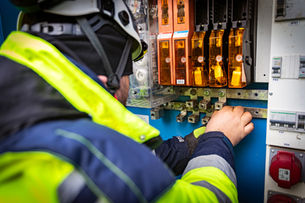

Unterschiedliche Aufwärmzeiten an der Montagelinie
FALLSTUDIE: Gleiche Montagelinie, gleiche Produkte, gleiche Rahmenbedingungen –und trotzdem unterschiedliche Aufwärmzeiten nach dem Produktionsstart.
Ein Phänomen, das viele Produktionsverantwortliche kennen –und das regelmäßig zu Ausschuss, Verzögerungen und Diskussionen führt.


Komplexe Probleme systematisch lösen – wie Lean-IQ Unternehmen unterstützt, Herausforderungen methodisch anzugehen
In komplexen Produktions- und Technikumgebungen entstehen Probleme selten isoliert. Häufig spielen mehrere Ursachen zusammen, deren Wechselwirkungen auf den ersten Blick nicht erkennbar sind. Unternehmen, die hier intuitiv reagieren, riskieren Zeitverlust, Kosten und Kundenunzufriedenheit. Lean-IQ unterstützt Organisationen dabei, solche Herausforderungen systematisch, methodisch und analytisch anzugehen – mit der bewährten InnoSolve-Systematik.


Industrial Automation’s Supply Chain in 2026: Fragility Below the Surface of “Recovery”
In early 2026, many market narratives suggest that global supply chains have normalized since the severe disruptions of 2021–22. Yet for industrial automation and its extended value chain, this supposed recovery masks persistent structural stress. Automation OEMs and their suppliers — from semiconductor memory to specialized electromechanical components — are still navigating constrained capacity, allocation imbalances, and geopolitical volatility that reverberate through lea





Kommentare